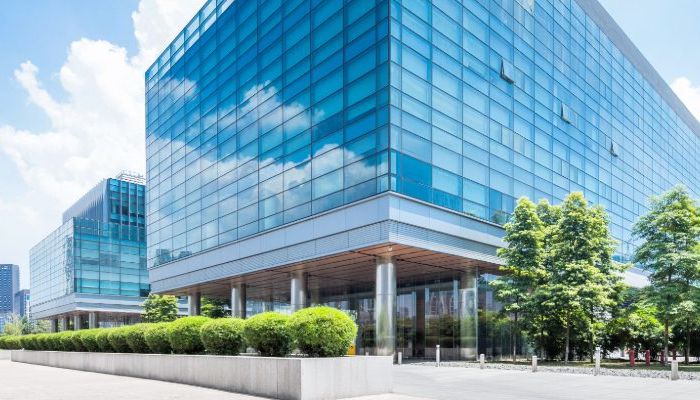The built environment is responsible for 42% of annual global carbon dioxide emissions, according to Architecture 2030. So, it’s no surprise that the real estate sector has been the focus of legislation around the world aimed at slowing climate change. The compliance burden associated with these regulations varies widely from place to place. In the U.S., for example, cities like Atlanta, Orlando and Austin have “report-only” laws that require building owners to collect and disclose utility data, but don’t mandate performance improvements. On the other end of the spectrum, landlords in England and Wales must prove that their properties meet minimum energy efficiency standards (MEES) or risk losing the ability to lease them.
For organizations with property portfolios spanning multiple jurisdictions, the process of navigating a complicated and constantly-changing regulatory landscape can be a major resource drain. That’s why many of them have turned to our OpenBlue Insights multi-data point analysis platform to streamline that process and help ensure the accuracy of the data being reported.
Here’s a look at some common provisions of environmental laws around the world and how OpenBlue is helping businesses comply with them.
Collecting and Reporting Utility Usage
Many jurisdictions require owners or operators to collect, report and disclose energy usage data as a foundational step in reducing emissions. For example, under its Energy and Water Reporting and Benchmarking initiative, the Canadian province of Ontario requires owners of buildings over 50,000 square feet to report utility consumption annually.
OpenBlue Insights automates the collection of energy and water usage data and centralizes access to that information for easier analysis and reporting. Consolidating relevant data into a single platform enables stakeholders to easily adjust reporting parameters for multiple properties, or an entire portfolio, as regulations change.
Performance-Based Building Standards
Many jurisdictions that started out with report-only laws have since expanded them to compel improvements in building performance. For example, Tokyo’s environmental reporting ordinance, launched in 2002, has evolved into a mandatory cap-and-trade program. Under the program, owners of large buildings that fail to meet targets for reducing greenhouse gas (GHG) emissions must take corrective actions, such as purchasing carbon credits, to offset their excess emissions.
Organizations that are subject to building performance standards must take advantage of every opportunity to reduce their carbon footprint. OpenBlue Insights gathers information from building systems, sensors and meters to help real estate and facilities teams uncover sources of energy and water waste that might otherwise go undetected. The integration of Net Zero Advisor into OpenBlue Insights makes it easier to understand how much emissions are being reduced through existing efforts, while revealing new opportunities to optimize energy consumption.
Lifecycle Carbon Limits
France’s RE2020 Lifecycle Carbon Law requires stakeholders to measure, report and limit the total amount of GHG emissions associated with a building during its entire life. This includes the emissions embodied in the production of construction materials, as well as emissions that will eventually be generated in the process of dismantling the building. For now, this most rigorous form of environmental oversight applies only to new construction and major renovations, and it’s an approach that hasn’t been widely adopted outside of Europe. But that may change, as several other countries, including China and Australia, are considering implementing similar rules.
OpenBlue Insights integrates with building information modeling systems, computer-aided design models and the Metasys building automation system to give owners useful insights into the current and past performance of their space. This information can be invaluable in optimizing the design, techniques and materials used in renovations and construction, helping stakeholders make data-driven choices that will support compliance with these requirements.
Conclusion
Environmental laws that were already stringent are getting tighter, while all signs point to soft-touch regulations getting stricter as governments continue battling climate change. This erratic evolution makes the task of complying with these rules doubly complicated.
OpenBlue Insights gives organizations the visibility, control, and foresight they need to stay ahead of these regulatory shifts. The capabilities the platform delivers not only aids in compliance today, but will help businesses more easily adapt to whatever challenges new and changing regulations present them tomorrow.










